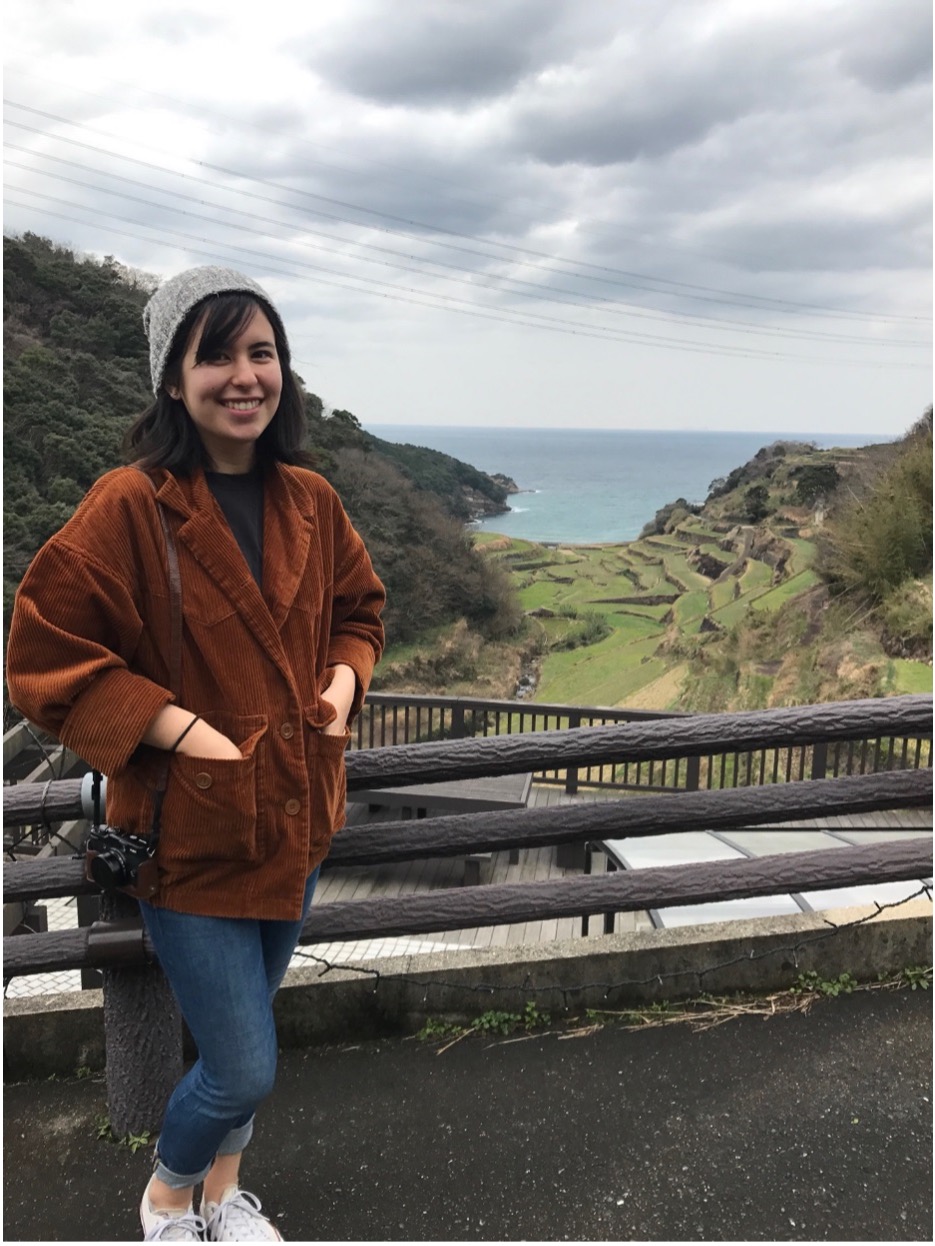The academic program of the Asian Studies Department is facilitated and enhanced by the participation and support of the affiliate faculty of the School of Pacific and Asian Studies area centers.
Center for Chinese Studies
The Center for Chinese Studies (CCS) aims broadly at an increased understanding of contemporary China in light of its history and its hopes for the future. It pursues this goal through instruction from 56 faculty members in 30 departments who teach more than 200 China-related courses; research by faculty, who publish an average of six books and a score of articles on China each year; service publications, such as its quarterly journal China Review International, which provides an overview of current world wide scholarship on China and community outreach, conferences, and national and international linkages with institutions such as Peking University, Beijing Foreign Studies University, the National Taiwan University, and the Chinese University of Hong Kong.
By creating a stimulating environment for the faculty and the approximately 150 mainly graduate students specializing in Chinese studies, CCS supplements basic scholarly offerings, and focuses attention on the university’s significant resources for the study of China. These include the Asia Collection in Hamilton Library, the Wong Audiovisual Center in Sinclair Library, and the multimedia collection of the Language Telecommunication Resource and Learning Center.
The center is part of the National Resource Center for East Asian Studies, which, together with Japan and Korea, are supported by major funding from the U.S. Department of Education.
Center for Japanese Studies
The Center for Japanese Studies (CJS) promotes the study of Japan within a global context, across academic disciplines at UH Manoa. Japanese studies faculty include 37 professors, 15 Japanese language instructors, 3 library specialists, and a chanoyu (tea ceremony) instructor who offer over 120 courses in 20 instructional or department units to approximately 3,500 students annually. An integral part of CJS is the Dr. Sen Soshitsu International Way of Tea Center, which serves to perpetuate tea culture by offering tea practicum courses and coordinating tea-related outreach projects. CJS coordinates the Title VI National Resource Center East Asia grant, which includes curriculum development, outreach, and library development projects in East Asia. The center’s role is to act as a coordinating body for Japanese studies at UH Manoa and as a clearinghouse for inquiries related to the field; in this role, CJS offers student scholarships and faculty professional development funding, provides student advising, sponsors seminars and conferences on Japan, sponsors visiting scholars, coordinates a summer student internship program in Ehime (along with the Japan-America Society of Hawai’i), and administers partnerships with overseas research institutes.
Center for Korean Studies
The Center for Korean Studies coordinates and develops UH Manoa’s resources for the study of Korea. The 39 faculty members affiliated represent the disciplines of anthropology, architecture, art, business, communication, communicology, economics, English, ethnomusicology, history, language and literature, law, political science, social work, sociology, and urban planning. The center promotes interdisciplinary and intercultural approaches to Korean studies; conducts scholarly conferences; sponsors research projects; presents specialists and visiting scholars in colloquia; publishes scholarly works and an interdisciplinary journal, Korean Studies; and coordinates UH Manoa resources on Korea and researches the activities of Hawai’i’s Korean community. The center maintains a special collection of personal libraries and private papers of distinguished scholars on Korea. It also has a small collection of books, journals, audiovisual materials, and other documents as an adjunct to the UH Manoa library’s Korean collection.
Center for Okinawan Studies
The Center for Okinawan Studies (COS) was established in 2008, and has the distinction of being the first center of its kind outside of Japan. COS is a coordinating unit with a mission to promote Okinawan Studies. It strives to enhance the study and understanding of the history, culture, environment, and societies of the Okinawan/Ryukyuan peoples, including diaspora. COS is committed to supporting the research and teaching of Okinawa/Ryukyu-related subjects by its faculty, staff and students, as well as providing outreach to the general community in the form of workshops, lectures, seminars, and conferences. It also supports the student-exchange program with the University of the Ryukyus. Collaborative works with the University of the Ryukyus are also being planned for future projects.
Center for Philippine Studies
The Center for Philippine Studies at UH Manoa is the only university center offering a comprehensive academic program for Philippine studies in North America. With an interdisciplinary faculty based in various departments, it promotes a broad understanding of Philippine society and culture, including Filipinos in the diaspora, through course offerings, library resources, lectures and seminars, scholarly conferences, research and publications, visiting faculty, international academic exchanges, cultural presentations, outreach with the Filipino community in Hawai’i, institutional linkages, and other professional activities. UH Manoa has the largest concentration of internationally known Philippine specialists and experts in various disciplines. The center serves as the Secretariat for the International Committee on Philippine Studies.
Center for South Asian Studies
The Center for South Asian Studies at UH Manoa serves as an intellectual hub in the Pacific for research on and learning about a highly diverse region that encompasses Bangladesh, India, Pakistan, Nepal, Tibet, Sri Lanka, Lakshadweep, and the Maldive Islands. The objective of the center, since its creation in 1985, is to promote interdisciplinary research on South Asia and the diaspora, and assist undergraduates as well as master’s degree candidates in the humanities, social sciences, and applied sciences to focus on societies and cultures of South Asia and the South Asian diaspora. The center’s activities include colloquia, invited lectures and workshops, an annual spring symposium, cultural programs, and outreach. The library’s South Asia collection is ranked among the top ten in the U.S. The center draws on the expertise of more than 40 distinguished faculty members who research interests spread over India, Sri Lanka, Bangladesh, Pakistan, and Nepal.
Center for Southeast Asian Studies
The center is one of only eight National Resource Centers (NRC) for the study of Southeast Asia in the U.S. as awarded by the U.S. Department of Education. It acts as a coordinating body for Southeast Asian studies throughout the university. With more than 55 affiliated faculty members distributed through 21 departments, the center interacts with the largest concentration of Southeast Asia specialists in the U.S.
CSEAS is responsible for administering and awarding the Foreign Language and Area Study (FLAS) fellowships. In support of academic research, the center supports a Southeast Asian language reading test initiative and provides substantial yearly funding to maintain and grow the Southeast Asia Collection at Hamilton Library.
The center works to promote Southeast Asian studies nationally through its support of teacher training by providing in-country learning experiences. CSEAS, with Fulbright Group Program Abroad (FGPA) support, will take K-12 teachers to the Philippines and Viet Nam in the summer of 2013.
Locally, CSEAS acts as a clearinghouse initiating and publicizing events on the campus with a Southeast Asia focus including a twice-monthly Speaker Series. Central to this PR effort is its popular website and well-developed social media profile. The center has a strong commitment to outreach programs with its support of the popular Randai Indonesian theatre/dance performance, and continues to broaden public interest in Southeast Asia through a weekly film series now in its 8th season. More information on the UH Manoa Center for Southeast Asian Studies can be found at the Center’s website.
Center for Pacific Island Studies
In addition to its Pacific Island focus, the Center for Pacific Island Studies also provides resources for scholarship on the integrated Asia-Pacific region.
The Center for Pacific Islands Studies coordinates aspects of the Pacific-related activities within UH Manoa and promotes further study of the region. The center sponsors an annual conference and a seminar series that features a variety of visitors en route to and from other Pacific Islands. The program publishes a blog, a series of occasional papers, and, in collaboration with the UH Press, the Pacific Islands Monograph Series, and The Contemporary Pacific: A Journal of Island Affairs. The highly acclaimed Pacific Island Studies Department offers Bachelors and Masters degrees.


